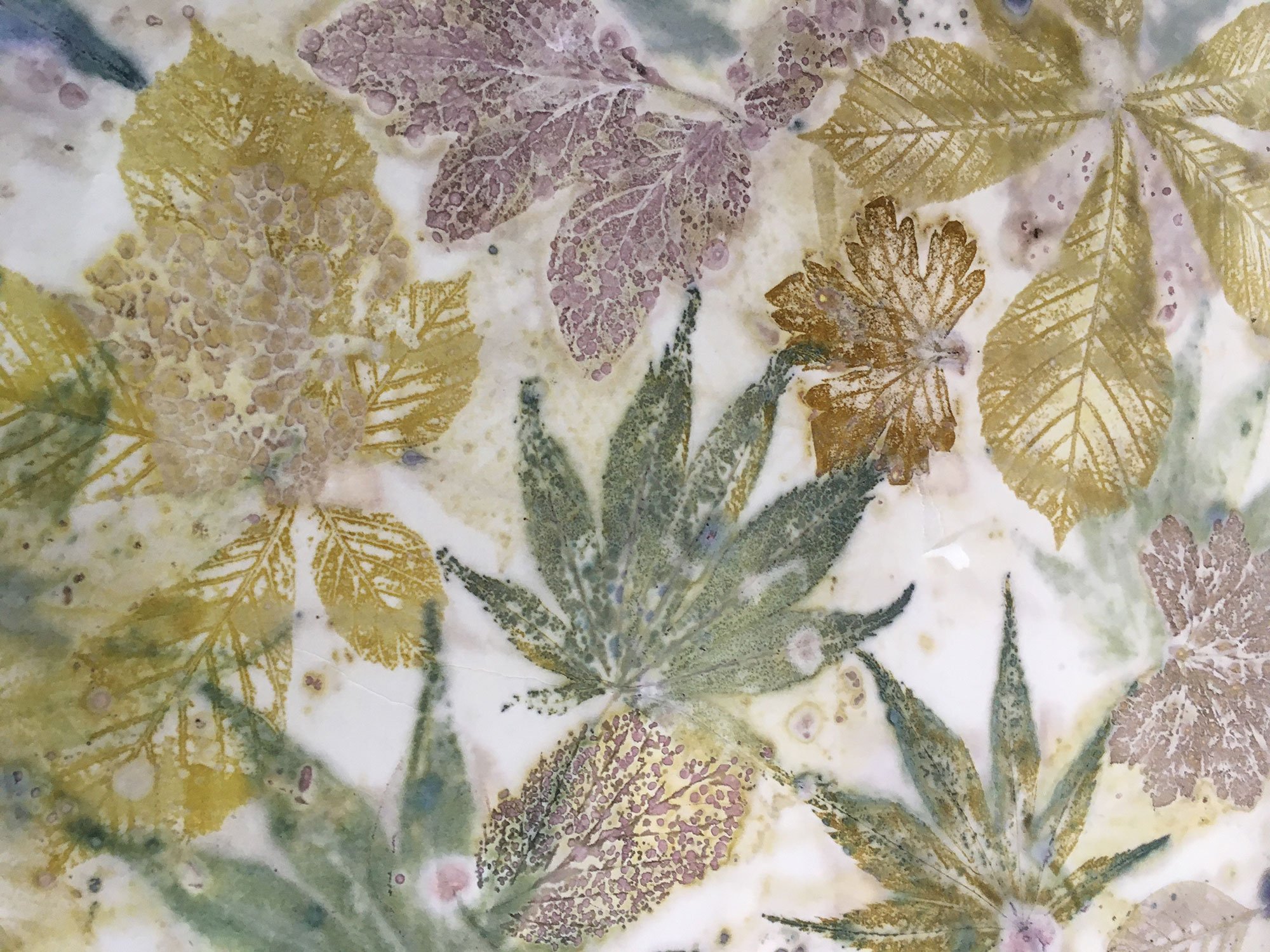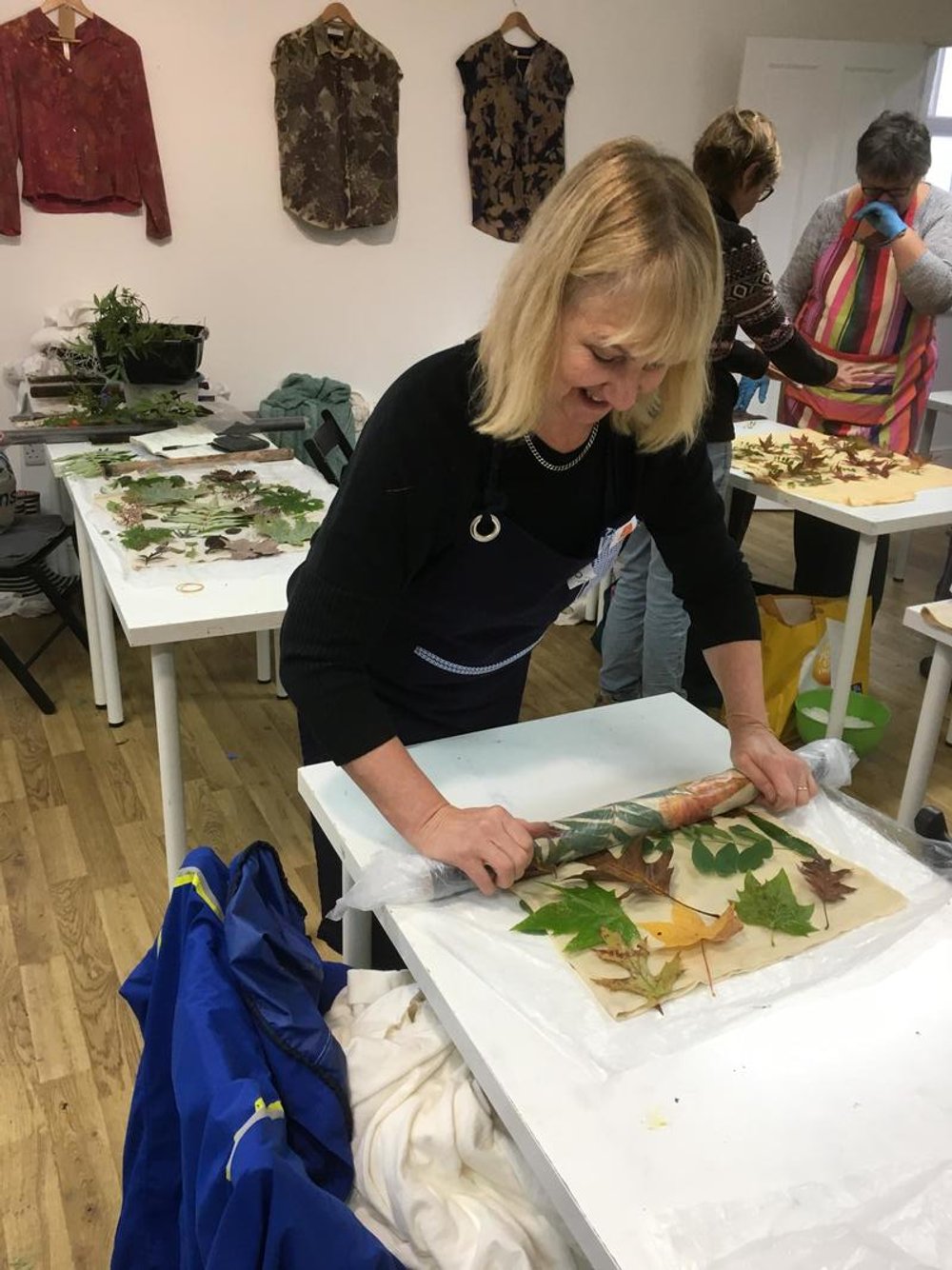An introduction to the magical craft of ecoprinting with tutor, Fiona Balding. You will be amazed and delighted at the fabulous images that can be created, on both paper and fabrics, using the natural dyes and tannins from leaves.
Our ecoprinting day will give you the skills and knowledge to create unique and original prints and Fiona will provide you with a wealth of ideas of how these could be used.
In this workshop, you will explore a wide range of ecoprint processes and discover some of Fiona’s secrets of successful ecoprinting.
What is included
All the fabrics and papers for the printing processes
Handouts on processes and techniques
Use of all required ecoprinting tools and equipment
A variety of leaves – but you may also wish to bring some of your own such as oak, chestnut, walnut, birch, eucalyptus, hardy geranium, cotinus, acer, maples – which work particularly well
What you need to bring
A large old towel
A ball of natural coloured string
A pair of scissors
A couple of pairs of medical type gloves
Old clothes/apron
Your choice of leaves (optional, and only if available)
Packed lunch and any additional drinks
We will take a short break at about 12pm for lunch/refreshments. Coffee, tea and biscuits provided.
Cost
£75 per person.
Booking
Booking is via the tutor: please contact the tutor, Fiona Balding direct by calling 07534 246893 or emailing fionabalding@gmail.com. You can also email her if you have any questions about the workshop.
Suitable for beginners and those with some experience, age 18+. Places are limited to 10, so we recommend you book early to avoid disappointment.
About the tutor
An experienced teacher, Fiona spent 38 years teaching Textiles and Food in secondary schools. Always a passionate printmaker, she was mesmerised when she discovered ecoprinting and has worked extensively over the last few years, developing her knowledge and understanding of this fascinating process.
One of the most important things that drew her into this printing process was its sustainability credentials. Nothing is wasted in the production of these prints. Used plant materials are composted, and the mordants are then used as natural garden fertilisers. Preferred textiles used are recycled cotton sheets, vintage linen and even old silk wedding dresses, often purchased in charity shops.



